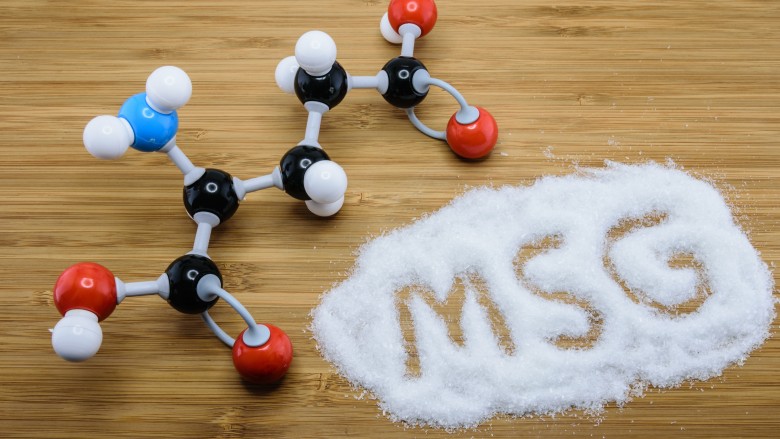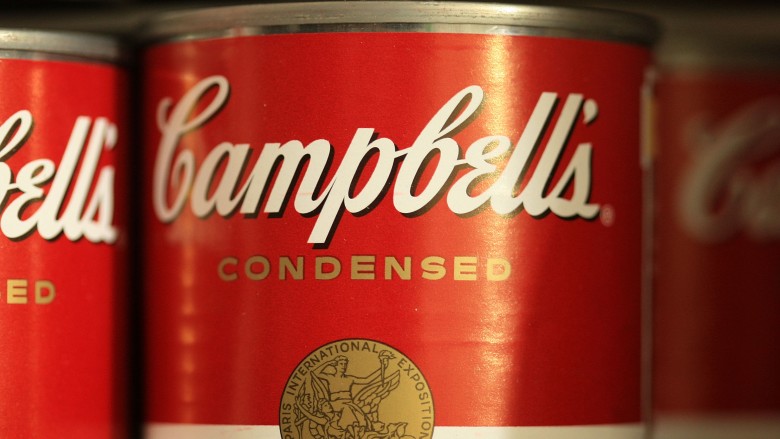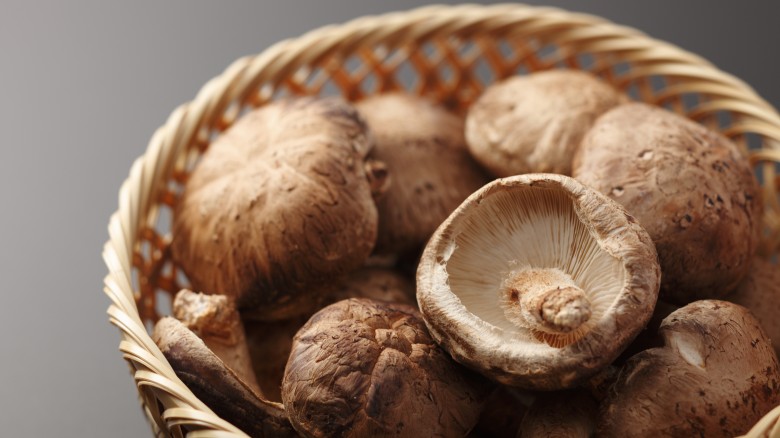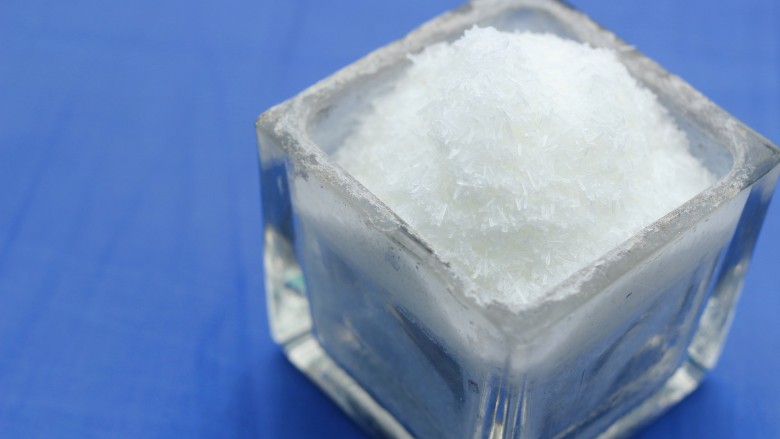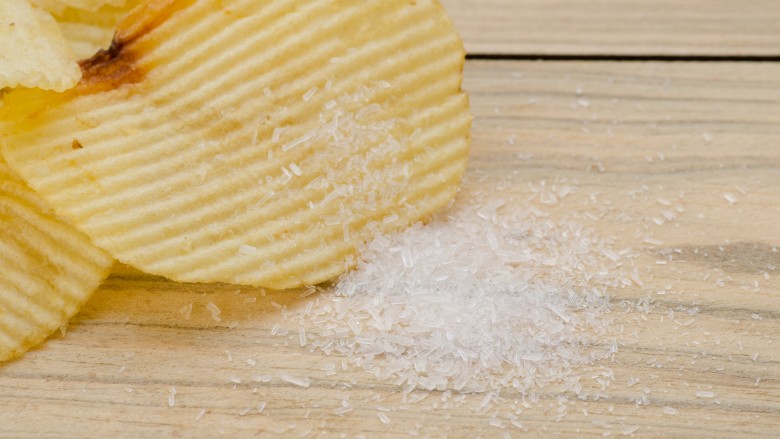What You Don't Know About MSG
intro
Chances are, you've heard of MSG — you probably have an opinion about it, too. There are very few ingredients that will get a bigger reaction from people these days than MSG. It's the super villain of food — the stuff of headaches, swollen lips, chest pains, and depression, if you listen to all the hype. On the other hand, MSG is also the stuff of enhanced flavors and it can change the way you experience your food — in a big way. There's a reason it's so popular, after all. It's in a huge number of products (probably some you would never have guessed), while those companies that go MSG-free wear their label proudly. Love it or hate it, MSG is definitely in your diet and you can't get away from it, no matter how hard you try. That means it's worth knowing a little more about. Here's the real truth about MSG.
Who invented it
Born in 1864, Kikunae Ikeda was a chemistry professor at the Tokyo Imperial University (which would later become the University of Tokyo). Mixing physical chemistry with practical research, his biggest breakthrough would come when he started breaking down the components of seaweed broth.
What he was looking for was, in short, the compound that made it taste good. The idea that humans are capable of detecting sweet, salty, bitter, and sour flavors has been long accepted, but Ikeda proposed there was a fifth flavor. When he was in Germany for his studies, he noticed the tomatoes and asparagus he tried had a flavor reminiscent of the seaweed broth, and he theorized there was some substance that was responsible.
His work wasn't just based in culinary concerns, either, as his studies led him to the conclusion that there was a connection between taste, digestion, and ultimately, good health. It was an idea pioneered by one of his contemporaries, a doctor named Hiizu Miyake, and one that drove his own world-changing work.
What is umami, and how is it related to MSG?
You may have heard about the idea of umami, that mysterious fifth taste that embodies everything that's good and savory. If you have a tough time describing it, you're certainly not alone, and if you're wondering what it has to do with MSG, that answer, at least, is simple — it's the essence of MSG.
When Ikeda got down to extracting what was essentially the taste from one of the broth's key ingredients, seaweed, he had his mysterious substance responsible for the fifth taste. It was monosodium L-glutamate, and he called it umami. In 1908, he applied for a patent on the process he used for the extraction, and got in touch with, oddly, the head of Suzuki. They put together a company to market his discovery (which is often considered one of the ten greatest inventions ever to come out of Japan), and he called it Ajinomoto. That translates to "quintessence of flavor", an accurate description of what he had.
If you want to get into more specifics, MSG is one of the molecules that's created when foods start to age. Let's take cheese. When cheese starts to age, it only gets better. That's because proteins are breaking down, and one of those proteins that's created is L-glutamate. It's also created when some foods — like meat — are heated, and that's what we're tasting when we say we're eating something that's heavy on the umami.
Why it's so amazing
Take a big spoonful of MSG on its own, and you're not going to be nearly as impressed with its flavor as you are when you bite into a massive burger piled high with things like mushrooms and tomatoes. That's because there's some fascinating science at work behind this flavor enhancer, and it all has to do with how we combine our food.
It's complicated science, too, so here's the brief version. MSG causes us to perceive that amazing taste when the glutamates of MSG combine with something called ribonucleotides. That's when our taste buds really light up, and there are certain combinations of foods that are spot-on when it comes to providing that magic combination of chemicals. Beef is one key component, and if you pile it high with, say, cheese and tomatoes, you've got yourself a match made in heaven. We've always known there are some combinations that just work together to create something amazing, we just didn't know anything about the science behind why it works until relatively recently.
How its popularity increased
After Ikeda's discovery of MSG and Suzuki's investment came an uphill battle to get the seasoning accepted into the mainstream culinary world. At first, it was marketed as Ajinomoto, and the company tried to sell it on a large scale. When food manufacturers and restaurants turned down the idea, they targeted the Japanese bourgeois, presenting MSG as a product based in science for a modern kitchen. They brought in all kinds of professional endorsements — it was even marketed in elegant glass bottles to attract the eye of the modern housewife, and it soon became a mainstay across Japan.
Ajinomoto faced another uphill battle in China, where it was known less for its flavor-enhancing abilities and more as a symbol of Japanese imperialism. Forced to reinvent itself throughout the 1920s, it was only when they started advertising under Chinese branding that it conquered all the markets in China.
In order to conquer the US market, the strategy changed yet again in a rather unlikely way. With American housewives unimpressed by the marketing that had been a hit in Japan, it was World War II that ended up being the driving force behind bringing MSG to America. When military rations became the go-to foodstuff for countless men and canned, tinned, and frozen foods became much more important, manufacturers realized just how invaluable MSG was in making their cheaply made meals into something people would actually want to eat. While it never broke into the domestic market, MSG became a major part of food manufacturing on a commercial scale, starting with companies like Campbell's.
What foods come pre-loaded with MSG
MSG gets something of a bad reputation, and you've probably heard it condemned as a nasty, artificial food additive that causes all kinds of problems. What you might not realize is that it occurs naturally in a whole lot of foods, and if you've eaten any of these, you've eaten natural MSG.
Some of the foods highest in natural MSG include things like Parmesan cheese, dried shiitake mushrooms, oyster sauce, and soy sauce. If you notice anything these all have in common, it's that they're toppings we've long known add an extra kick of amazing flavor to whatever it is we're cooking, and that's because of the MSG-umami phenomenon.
A bit further down the scale are foods like peas, tomatoes, grape juice, green tea, and sardines, also all known for adding a bit of an extra kick to any meal. So, if you want some serious umami flavor without adding artificial MSG, try some foods that come loaded with it naturally.
How racism fed the hate of MSG
You might be familiar with the term "Chinese restaurant syndrome," the idea that after eating food filled with MSG, you're going to feel more than a little worse for wear. Symptoms include headaches, numbness, facial swelling, flushing, sweating, and even chest pains. The term was coined in a 1968 article in the New England Journal of Medicine, and it was written by Robert Ho Man Kwok, a Chinese-American doctor living in Maryland. He was writing about the general sense of weakness he felt after eating at Chinese restaurants in America. He guessed at a few different possibilities, including an allergy, the presence of cooking wine, and most specifically, the high sodium content in the food. At the end of the piece, he added the idea that MSG might magnify the effect of that high sodium content, and everyone was off and running at that.
When food historian Ian Mosby took a look at the history of the MSG panic, he found that Kwok's original article was met with a flood people describing their own experiences. The NEJM and other publications were sharing the results of studies that seemed to suggest there was a direct link between the food prepared in Chinese restaurants and these symptoms, while largely ignoring the fact that not only was MSG used in a lot of cooking, but it was naturally occurring, too. Mosby suggests that there was something larger at work here, mostly the widespread belief that Chinese restaurants were doing some shady things behind closed doors.
MSG's supposed effects have varied greatly
When food historian Ian Mosby took a look at the roots of the widespread suspicion of MSG, he didn't just find that the so-called scientific studies done in the early years of the panic were highly suspect, but he also found that the supposed effects of MSG varied hugely. While we usually think of MSG allergies as having something to do with chest pains and heart palpitations, that wasn't always the case.
Kwok's original article stated that his experiences after eating at a Chinese restaurants were fatigue, and he noticed how Chinese food made him thirstier than usual, too. But by 1978, there were plenty of people writing various publications to say they had symptoms more akin to things like the gastrointestinal distress of food poisoning, while other stories even blamed depression and irrational outbursts on MSG. One psychologist claimed that for two weeks after eating a meal at a Chinese restaurant, his wife became depressed, suffering from dark fantasies, and irrational rage. The same psychologist blamed the meal on his 9-year-old's hyperactivity, and claimed that another dose of won-ton soup caused the same problems once the effects of the original meal wore off. By the end of the decade, medical journals were claiming "CRS" could, indeed, cause mental distress like extreme depression. That's a pretty big shift in symptoms, and it's easy to see why science — and chefs — are still scratching their heads decades later.
How much of it are you really getting?
If you regularly read all your food labels, you might try to avoid things that have MSG in them. You might even think you do a pretty good job at avoiding it, but according to Food and Drug Administration estimates, you're getting a decent dose of MSG no matter what.
The FDA says there's absolutely no difference between the chemicals that are synthesized in MSG and the glutamates that occur naturally in our food. They also estimate that on average, an adult gets about 13 grams of glutamate each day just from the proteins they eat. That's not terribly much, and it's certainly not much to be worried about. When they estimate how much added MSG you're getting from a regular diet, they say on average, you're only looking at about .55 grams. They also say that when you're eating something that contains MSG, they consider a "typical" serving to only be about half a gram.
What the real effects of MSG are
It's tough to know what's real news and what's fake news these days, and when you see articles calling MSG a "silent killer," it makes you think twice about what you're eating. That piece claims that MSG is worse than alcohol and nicotine, and the truth? Science says that's far from it.
In 1995, the FDA did a couple things, and the first was to get rid of the term "Chinese restaurant syndrome." Now, it's more officially called MSG symptom complex, and it covers not only all the symptoms that have been associated with MSG, but all the sources, too. At the end of their studies, they found there was evidence that MSG could cause the symptoms it was blamed for, but only if you ate enough of it. In order to get any sort of regular response, that meant giving volunteers at least 3 grams of MSG, straight up in water, without any other type of food. Given that's way more MSG than you're getting at any given time in your regular diet, it's unlikely you're going to be exposed to those kinds of levels outside of a scientific study. Other studies — including one done in 2000 — seems to suggest there's no real evidence for MSG sensitivity at all.
We've known about this for a while, too, with a 1994 Australian study calling MSG a "scapegoat." They took a look at some of the studies that were previously used as proof that there was something dangerous about MSG, and started punching holes in their methods. Continuing studies keep showing that there's no link between MSG and conditions ranging from allergies to asthma, and the FDA says MSG is "generally recognized as safe", or GRAS.



